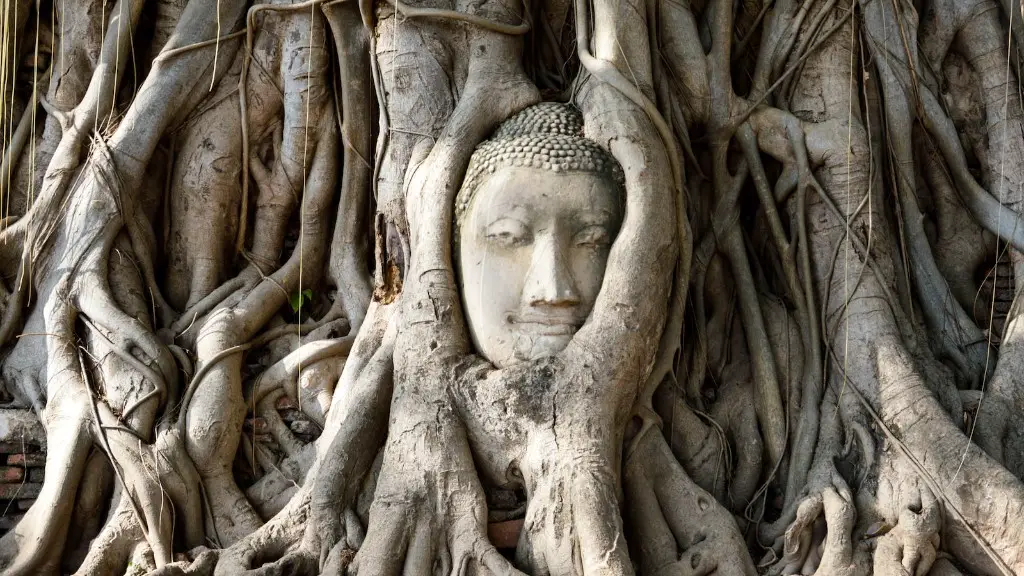Hinduism is one of the world’s oldest living religions with a long written history and a rich oral culture. Hindus consider the sacred writings of the Vedas, Upanishads and Bhagavad Gita as the most important and authoritative figures in the religion. These sacred texts form the foundation of Hindu beliefs, prescribing the rules of conduct and dictates of ethical behavior. Hindus use the words “Veda”, “Shruti” and “Smriti” to refer to the three main collections of Hindu scriptures.
The Vedas are the original written records of religious knowledge and philosophy handed down orally to generations of Hindu sages, priests and saints. The Upanishads are esoteric philosophical texts. The Bhagavad Gita is an epic poem depicting the teachings of Lord Krishna to Arjun, the hero of the greatest war in the Hindu religion. All these texts have been sanctified by the scriptures and regarded as revelations from the Supreme Being — the creator of all life.
At the center of Hinduism lies the holy book called the Vedas. This scripture was written more than 2500 years ago, and is considered one of the founding texts of the Hindu faith. Vedas is derived from the Sanskrit word ‘vid’, meaning to know. It is a vast collection of mantras, hymns and ritual instructions that were the foundation of Hindu religion in ancient times. The four major Sanskrit texts in the Vedas are the Rig Veda, Sama Veda, Yajur Veda and Atharva Veda. They are called “the four faces of one of the most ancient spiritual knowledge” and are regarded as an integral part of Hinduism.
The Rig Veda is the oldest and most important of all Vedas and contains nearly 1,000 hymns, divided into 10 books. It is the principal source of information on ancient religion, literature and culture. The Sama Veda is a collection of hymns and chants, interspersed with musical notes, which serve as a model for devotional liturgical music. The Yajur Veda is a collection of sacrificial formulas and rules of ritual procedure, while the Atharva Veda is a collection of ancient spells, charms and incantations, used to ward off evil forces and protect families and communities.
The Vedas are not just books of scriptures or sacred stories, they are also the source of Hindu ritual, ritual aesthetics and social organization. The philosophical teachings from the Vedas have had a significant influence on modern Hinduism and modern Indian culture. They are also the source of timeless wisdom about the nature of the Self and the Universe, and provide insights into the joy of living and being.
Mysticism in the Vedas
The Vedas are a treasure trove of mystic knowledge, part of which is still shrouded in mystery. Through myths, stories, and fables, the Vedas point to deeper truths about the relationships between people, gods, nature, and the universe around them. They speak of the transcendent, and of a God who is not only omniscient, but who also resides within each of us. They also provide gems of spiritual advice on living an ethically and morally enlightened life. Moreover, the Vedas shed light on the concept of karma — the law of cause and effect — which is central to Hindu philosophy.
The Vedas are also the source of mantras, or sacred chants, and prayers that are used to invoke divine protection, invoke divine abundance and prosperity, or to thank the gods for their blessings. Mantras are thought to contain energy that amplifies and enhances our spiritual energy, and these chants are a part of almost all Hindu ceremonies and rituals.
A Source of Insight and Guidance
The Vedas are a source of insight and guidance that provide direction and meaning to life. They offer comfort and advice in times of difficulty and suffering, and serve as a reminder that despite their own trials and tribulations, life is still meaningful and there is always hope for a better tomorrow. In this way, the Vedas provide a roadmap for living an ethically and spiritually meaningful life.
The Vedas are also a valuable source of knowledge and wisdom that can help us understand our place in the universe and to find our connection with the divine. They teach us how to live harmoniously with others and how to lead meaningful lives. Furthermore, they empower us to make decisions that are guided by our inner values and not by external expectations or influences.
Expert Perspectives
According to prominent Hindu philosopher and scholar Dr. Ravi Pillai, “The Vedas are not just books of scriptures, they are also books of teachings, insights, and wisdom. They are timeless in nature and can be referred to in any age or time to gain a deeper understanding of life and the world around us.” He further states that, “In their essence, the Vedas are a treasure trove of spiritual knowledge, filled with truths and insights which remain relevant even in the modern era. Ultimately, the Vedas are a living testament to the power of faith, and provide us with timeless guidance and direction in life.”
Noted author and Hindu spiritual teacher, M.T. Subbulakshmi, posits that “The Vedas offer us profound insights into the nature of reality, and the universe that we exist in. They teach us that there are laws and principles at work in our lives, and that it is important to be aware of them and to act in accordance with them. Ultimately, through the Vedas, we can develop an understanding of our place in the larger universe, and be empowered to make choices that are aligned with our true nature.”
Continued Relevance
For thousands of years, the Vedas have continued to be the touchstone of Hindu spiritual wisdom. Their relevance and power remains undiminished, and their timeless teachings can still offer us valuable guidance in our daily lives. Newly revealed insights and interpretations of the Vedas are continually being shared by modern spiritual leaders, and the Vedas remain a key source of timeless spiritual wisdom in the Hindu tradition.
Conclusion of Its Unity
The Vedas are in many ways the foundation of the Hindu faith. They contain the original written records of religious knowledge and philosophy, which give rise to the major scriptures of Hinduism and set the rules for ethical behavior, ritual and social organization. The Vedas provide spiritual guidance, and an understanding of our place in the greater Universe. Even today, their wisdom continues to be relevant and offers guidance and direction, and is an integral part of Hinduism.
Implications on Culture
The Vedas have had a significant influence on the development of Hindu culture. As the main source of religious and philosophical teachings, the Vedas provide insight into the values and beliefs that are embraced in Hindu culture today. These teachings can be seen in the way Hindus relate to each other, and to the wider world, and can also be seen in the rituals, customs and celebrations that shape modern Hindu society.
Moreover, the Vedas have also had an influence on the way Hindus view their own self-worth and value, and have had a significant effect on the way Hindus view themselves and each other. In this way, the Vedas have helped shape a sense of identity, community and purpose in the Hindu community.
Modern Applications
Today, the Vedas remain an important source of spiritual knowledge and sacred teachings in the Hindu tradition. They continue to provide guidance, comfort and wisdom in times of difficulty, and give insights into our purpose and place in the universe. Moreover, many modern spiritual teachers draw on the Vedas when helping others to find inner peace and balance. Through modern interpretations and applications of the Vedas, these timeless teachings can still be relevant in our contemporary lives.
Western Perceptions
The Vedas are seen by Westerners as an ancient and mysterious set of texts, which few people have bothered to read or understand. However, the truth is that the Vedas have been studied and followed in the Hindu tradition for thousands of years, and are still relevant today. Westerners are now recognizing the wisdom contained in the Vedas and seeking to gain insight into their meanings and messages.
As knowledge about the Vedas grows, so too does the appreciation for its significance in the Hindu faith. The Vedas provide a source of comfort, insight and guidance for millions of people around the world, and their timeless wisdom will remain relevant for many more years to come.


